
With silent strokes, I swiftly sail. A glassy pool reflects my flight, the shining stars, and moon, so bright. The world is sleeping, but not I; One with water, I start to fly.” — an excerpt from the artist and poet Margaret Gregory’s, “Moonlit Row.”
For those reading the morning paper or struggling to get through their first cup of coffee, the thought of waking up at 5 a.m. and silently rowing down a freezing river guided only by moonlight is simply incomprehensible.
But to many people who are, or have been, involved in the sport of rowing, there is no better sensation. For Massachusetts women’s crew coach Jim Dietz, this connection is a necessary part of life.
“I love the sport of crew and it has been part of my life for so long, but I wouldn’t do it unless I really thought it had value,” Dietz said.
But Dietz is not just someone who loves the activity of rowing. Over the years, he has built a reputation as a rower that is highly regarded in the rowing community both domestically and internationally.
Rowing with national prowess
In high school, Dietz won all the United States and Canadian Scholastic championships in single and double sculls from 1964 to 1967, as well as the first Junior World Championship in Germany in 1967. He continued to row through college at Northeastern University and then went on to represent the U.S. as a professional.
“Representing the United States was surreal in one extent, but in another, it was planned,” Dietz said.
“I always knew that I wanted to become a professional, so when I was rowing day-in and day-out, the surrealism faded a bit. After time I was able to approach rowing in a professional manner, expecting to get results because I was training so hard.”
His rigorous training paid dividends as he piled up a staggering amount of awards. Dietz won 45 U.S. and 37 Canadian national championship titles and rowed as a member of the U.S. National Team from 1967 to 1983, including U.S. Olympic entries in 1972, 1976 and 1980. He won medals at the Pan American Games in 1967, 1975, 1979 and 1983 and was a member of seven World Championship teams. After the 1984 Olympics, Dietz retired and married his wife Pamela.
After this retirement, Dietz said that he was working as a broker on the floor of the New York Stock Exchange when the idea of becoming a coach entered his mind.
“At the same time, my wife and I were living on Danbury Lake in Connecticut, which is where the idea of becoming a coach materialized. Being on a lake and being around boats my whole life, it was natural that people regularly came up to row with, and be coached by me,” Dietz said. “So it was actually my wife who asked me, ‘Why do Wall Street? Why not just coach?’ And shortly after I took her advice to do exactly that.”
Dietz left the bustling city life to become the men’s coach at the U.S. Coast Guard Academy from 1985 to 1994. During these years at the Coast Guard Academy, he was also coaching at the national level.
He served as the men’s Olympic Quad Coach in 1988 and 1992 in Seoul, South Korea and Barcelona, Spain respectively. After leaving the Coast Guard Academy, Dietz signed on with UMass, where he turned his attention to coaching women.
“My arrival at UMass is a funny story actually,” Dietz said. “At the time, I was still coaching men at the national level, which was fortuitous for my women rowers. It just so happened that two of my UMass rowers met and married two guys I had been coaching. So I guess I created some happy households.”
But aside from being a champion rower, Wall Street broker and inadvertent “matchmaker,” Dietz was able to quickly turn the women’s crew team into one of the strongest squads in the nation.
Advocating change
Since Dietz’s arrival at UMass in 1995, the Minutewomen have won 14 Atlantic 10 Championships, 63 A-10 gold medals in 12 league championship events and have graduated numerous honor roll students. His success in Amherst has not gone unnoticed, as he was honored as the A-10 coach of the year eight times.
As the UMass crew team evolved into a rowing powerhouse, Dietz was also busy starting a non-profit rowing center and serving as a coach at the national level.
Some highlights of his national coaching era include a bronze medal at the 2000 Olympic games in Sydney, Australia and a fourth-place finish at the World Championship in Milan, Italy in 2003. His accomplishments with the U.S. National team as a rower and coach were recognized in 2010 when he was inducted into the National Rowing Hall of Fame. Dietz is now also serving as the vice president of USRowing.
In this position, Dietz said he is aiming to be an advocate for change in the sport of crew.
He said his vision moving forward is to give every collegiate rower in the country an equal opportunity to be recognized at the national level. To do this, he believes that crew needs to return to being an individual team sport – like track and field – rather than a team sport concept, as it exists now.
Dietz theorizes that if the college level added single, double and quad sculls – meaning only one, two or four people rowed in each boat – then success would be much more accessible to the individual.
The current format that Dietz believes is inherently flawed is this: In the sport of college rowing, each boat is comprised of eight rowers. Of those boats with eight rowers, it is those with the fastest times who get the chance to compete nationally. The shortcoming in this setup though is that strong individuals rowing for weak teams will never be recognized.
Unlike track and field, where individuals can qualify for events regardless of their team’s success, rowers are wholly dependent on the overall success of the team.
“The problem is that there are some small schools with incredible athletes, but they never get recognized because boats are rated as a team,” Dietz said.
“This means that you could have the fastest rower in the country who is destined to go to the Olympics, but because their team isn’t at the same level as a big school – that perhaps qualified with lesser individual talent – then that gifted athlete from the small school won’t ever have the opportunity to prove themselves.”
A lasting influence
Dietz’ vision is not limited to success on the water, as Andrea Morand – former UMass rower (2005-2009) and current assistant head coach of the women’s crew team – would tell you.
“As a coach he truly does his best to give you the tools to succeed at the highest level,” Morand said.
“He doesn’t just stand behind you and push you to your maximum limit. Instead, he’ll say, ‘I’m available after 1 p.m. today. Give me a text or a call and we can go out for a second workout, or come into the office to watch film to go over your technical aspects.’ He even has his apartment right next to the boathouse, so he is ‘literally’ always there for you, and I don’t think those things can be said about many other coaches.”
For Dietz though, this dedication is an absolute necessity in order to fully develop the skills that crew teaches. Watching his rowers grow into well-rounded, responsible and highly motivated people is what he said he finds most rewarding about coaching.
“Over the 20 years that I’ve been here, I am proud to say that I have had a number of doctors, lawyers and other extremely successful people that have taken what they learned from the program, become mentally strong because of the program and applied those skills to their daily lives,” Dietz said.
As an active member of the U.S. rowing community, Dietz said he is thrilled to see his old rowers take initiative by helping expand and introduce, the sport across the country. Amanda Kraus – a member of his first boat at UMass – has done exactly that since graduating in 1995.
Kraus started a multi-million dollar program called Row New York, which provided inner-city children from New York City a chance to row under the supervision of role models.
Athletes like Morand, Kraus and a number of other rowers Dietz has influenced over the years have all gone on to apply the skills crew helped developed, whether if it was directly related to crew or not.
As a result, these rowers have been able to touch other people’s lives largely thanks to sport. In this sense, crew is about more than just breaking records, winning titles, or competing in the Olympics and perhaps, even more than striking that feeling of “oneness” with nature that accompanies early-morning rows.
It is a combination of all those things that has kept Dietz so passionate about crew over the years. For Dietz, his goal is to make a significant impact in the rowing world, one stroke at a time.
Nick Casale can be reached at [email protected].

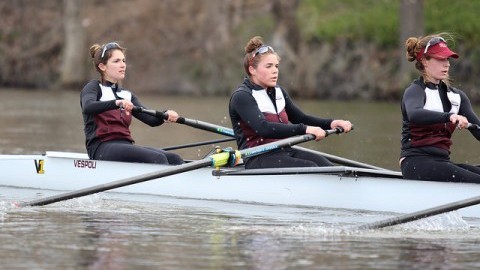
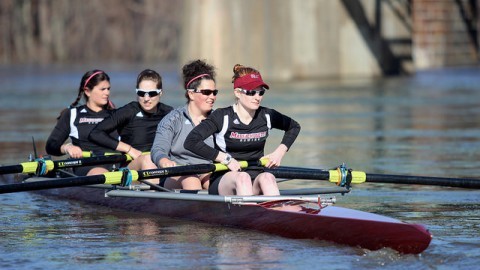
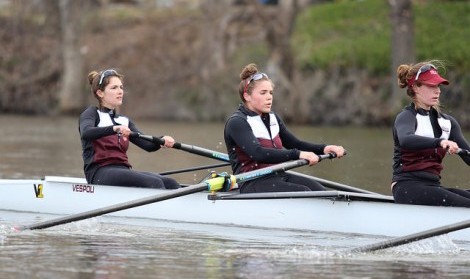
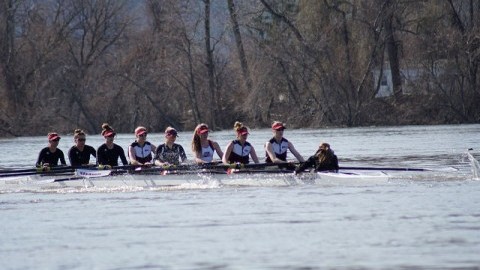
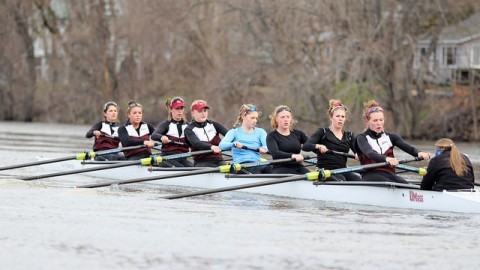
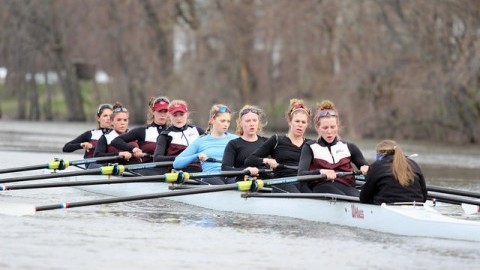

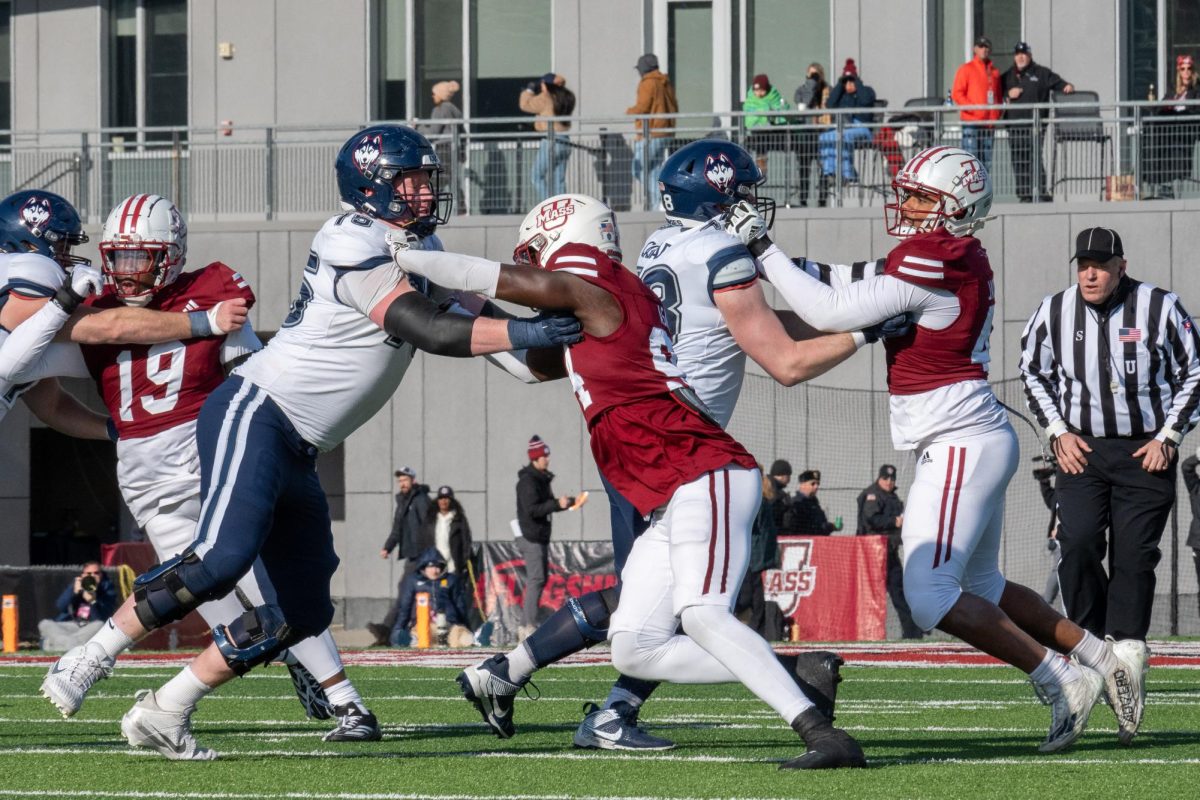
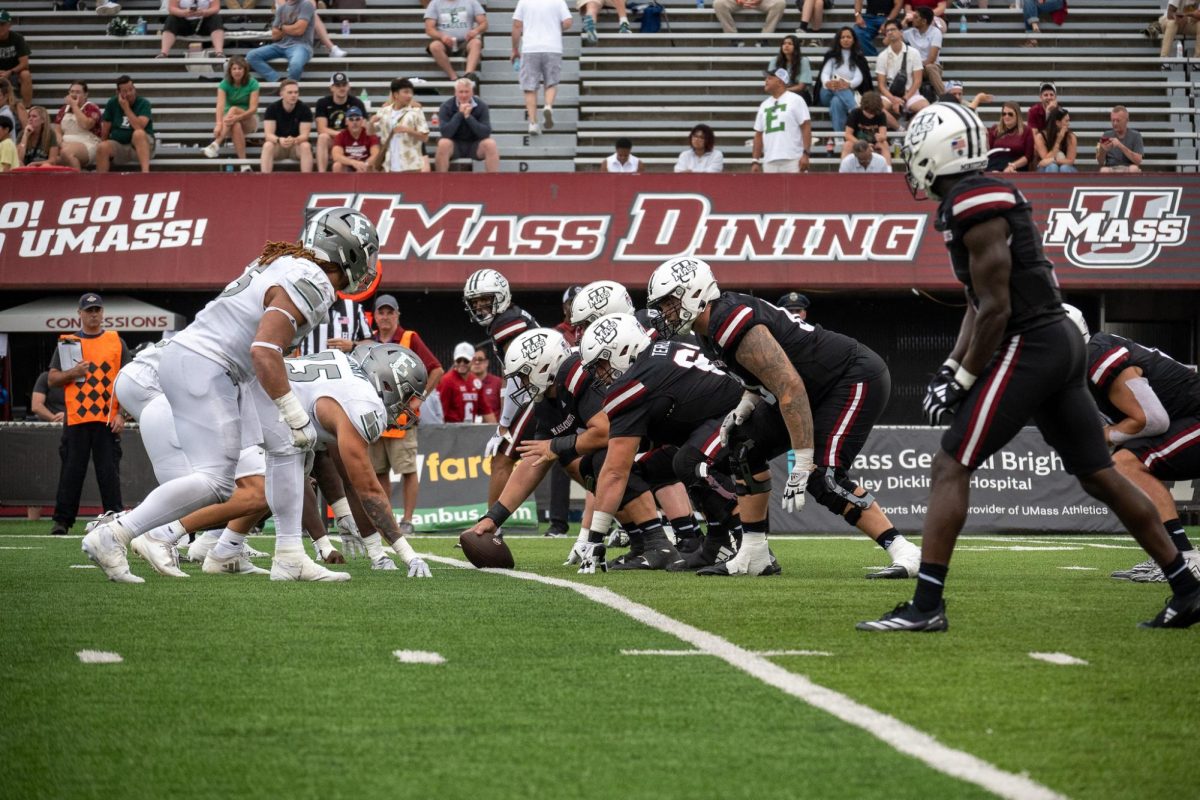
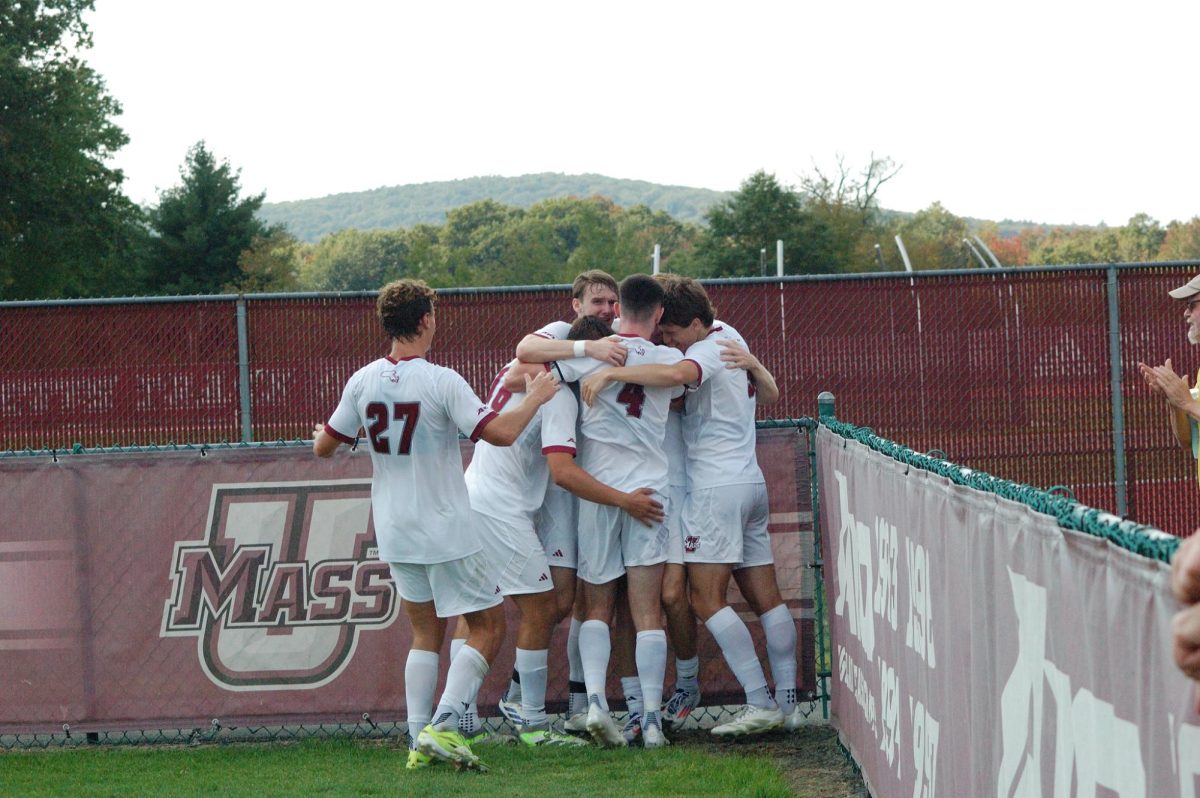

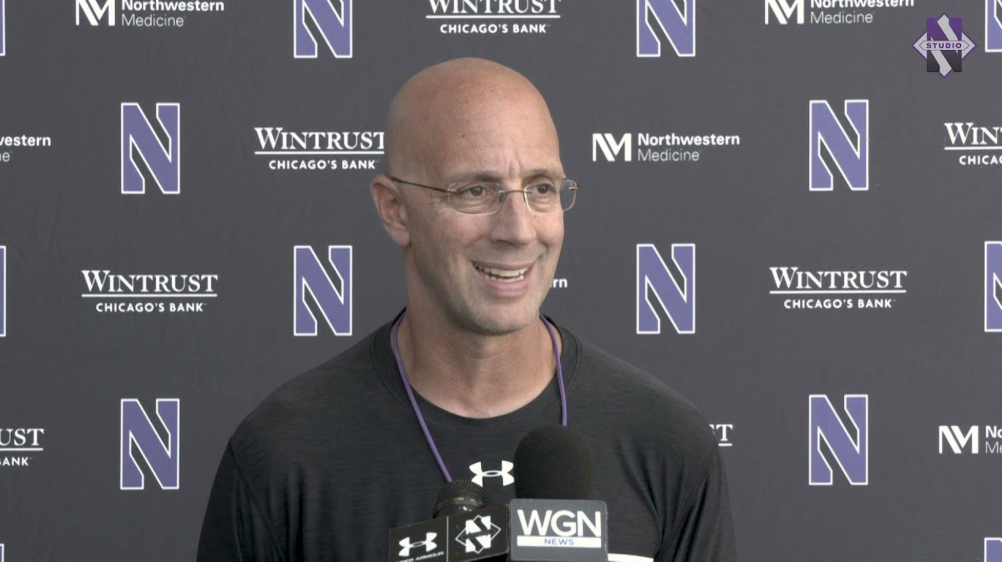






Tom • Nov 23, 2014 at 1:35 pm
You want to make great rowers teach/train your college rowers to be great coaches and teachers. We need talented coaches to build a stronger foundation when athletes are younger. Teach them to love the sport the rest will come.
Scot • Nov 19, 2014 at 12:02 am
I have known this great man since I was 7 years old. There is noone who cares more about the success of his athletes and the success of US Rowing more Than James Dietz. I agree wholehardedly with his comments regarding great rowers rowing with lesser athletes. Interestingly, so will the lesser athletes. Greatness recognizes greatness, by greatness I am including attitude and team support…no athlete, regardless of skill level, would want to hold back someone who is far beyond their individual capabilities. Sorry Larry, but you are so wrong in your critique.
drew mann • Nov 18, 2014 at 8:22 pm
I am not closely involved here but…this seems to go back to the “priority boat” approach — better to create one or two medal winning boats than a slew of non-medaling boats. It’s more of an international racing philosophy, right? At one time I was uncomfortable with it — I mean who cares about medaling in the pair or a four? Probably most coaches have been faced with this. I think a big part of this is “who” the coach is creating priority boats for — himself or the rowers — if the answer is not the rowers THEN there is a problem
Lawrence • Nov 18, 2014 at 2:14 pm
@Drew Mann – You’re points are well articulated and worthy of a reasoned response. I agree wholeheartedly with you regarding the value of small boat rowing improving the quality of larger boats. I do it and encourage others to do it as well.
However, what Jim has been proposing has been about the merits of leaving those “top athletes” in those small boats (presumably in order to compete and become stars.) Or, roughly paraphrasing something he said at a practice, “It’s not fair that the best athletes have to row with lesser athletes.”
This is about values. One of the most fundamental is that there are no stars. Jim has many selling points on this topic that are positive. But it has become transparent that his pitch is about creating a sport of individuals and stars – preferably Superstars.
This rubs many of us in the coaching fraternity the wrong way. Or as Ralph Waldo Emerson said ” “No member of a crew is praised for the rugged individualism of his rowing.”
Mary • Nov 18, 2014 at 2:12 pm
Smaller boats in my mind creates more accountability with the athletes.
Never the less, a great result to the movement would be that the promotion of the smaller boats will more than likely create longevity of the athlete in the sport of rowing but also increase the numbers of rowers who compete for years to come in Open, Master & Veteran events.
Drew Mann • Nov 18, 2014 at 2:05 pm
And, there’s nothing wrong with athletes who can really “bring it” showing what they have on the water.
Drew Mann • Nov 18, 2014 at 1:38 pm
Hey, I know very few truly gifted athletes who became rowers. “Second rate athletes” may not be quite right, but the point is there are many things working AGAINST rowing attracting top athletes. Putting rowers in small boats, in addition to broadening their rowing skills and overall “boatmanship,” allows some rowers to become closer to being stars. Motivating athletes on that level, and moving them back into larger team boats, brings up the overall competitiveness of the crew. I look at college coaches that have not introduced sculling, or even pairs, as being the ones who are out of step.
Lawrence • Nov 18, 2014 at 9:11 am
Jim was an outstanding athlete and superb rower. Something that doesn’t sit well with many of us in the rowing community is his near obsession on the individual. A quote of his from the ’80s might illustrate “Rowing is a sport of individuals.”
Respectfully Jim, most of us disagree. The “brand equity” of the sport is it’s fundamental emphasis on team and the accomplishments that are had by working together. Success in our sport is not about the individual.
Another sales pitch that Jim used finally pushed many of us over the edge “Rowing is attracting second rate athletes because we don’t focus on the individual.” Jim – people are being polite. But you have offended many along the way by espousing beliefs that are counter to why we have remained in the sport. The harder you have pushed the more it became obvious.
Larry –